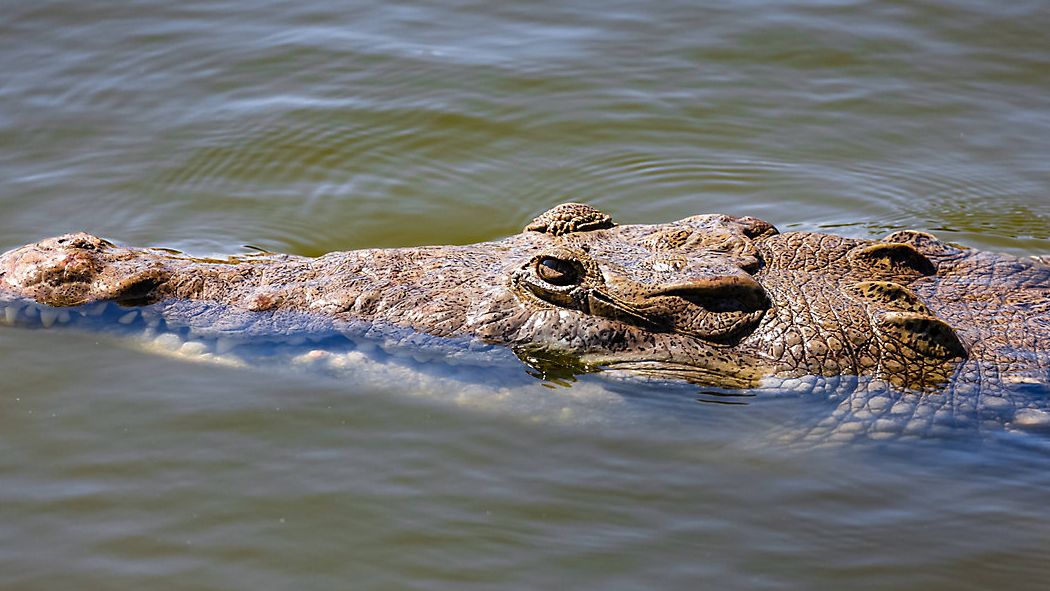INDIAN HARBOR BEACH, Fla. — A rare wildlife sighting has residents in Indian Harbor Beach talking. An American crocodile turned up once again in Gleason Park, a popular area where many locals jog and walk their pets.
What You Need To Know
American crocodiles are rarely seen this far north in Florida
The same crocodile was previously tagged in the Keys and relocated back in 2022
It returned this month to Gleason Park, drawing crowds and curiosity
Experts believe it may try to come back again
The crocodile, known to wildlife officials as “Number 40,” was first tagged in the Florida Keys as a hatchling and had been previously relocated from the same park back in 2022.
This year, it made its way all the way back, astonishing both experts and visitors.
“There was a crowd of about a dozen people right here,” said photographer Ryan Clapper, who came out to snap photos. “Right below us was a pretty big crowd.”
Clapper, who has lived in Florida most of his life, said he had never seen a crocodile in the wild before.
“I’ve been shooting for 25 years… so I’d never seen one in the wild,” he said.
Experts say the crocodile likely came from the nearby Indian River Lagoon, crossing residential areas and roadways to return to Gleason Park.
The Florida Fish and Wildlife Conservation Commission‘s Matt Nichols, who helps oversee its alligator management program, said it’s unusual for crocodiles to venture this far north.
“It is the only one in that area. And it’s the northern extent of the range, which [for] the U.S. and Florida is pretty rare,” Nichols said.
Despite the unusual appearance, experts say this species is not aggressive.
“An American crocodile is Crocodylus acutes,” said Savannah Boan, international ambassador at Gatorland. “They are not a very aggressive crocodile. They’re very shy.”
FWC officials have now relocated Number 40 to an undisclosed location for its own safety.
But Boan says it may not be the last time we see him.
“If it finds a place that it likes, it’s always going to go back to that same place,” Boan said.
FWC says there are about 2,000 crocodiles, excluding hatchlings, living in Florida.
As crocodile populations grow, wildlife officials say it’s possible to see more exploring new areas — though sightings this far north remain rare.
FWC urges anyone who spots a crocodile over 4 feet long in a residential area, park, school, or other populated place to call the state’s nuisance hotline at 1-866-FWC-GATOR.

